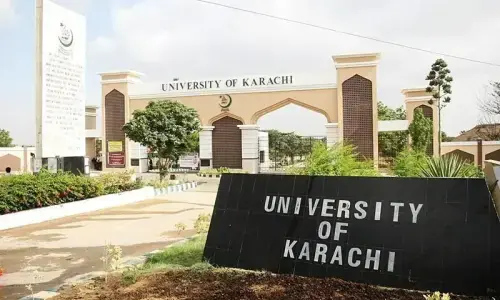KARACHI: Suggesting different strategies to help tackle the current economic crisis, speakers at a recently concluded conference urged the government to invest in human capital and make long-term policies that could only serve Pakistan’s interests.
The two-day conference was organised by the department of economics and management sciences, NED University of Engineering and Technology.
“The country has reached a point where it desperately needs support from the International Monetary Fund (IMF). Otherwise, it would move towards default,” former finance minister Miftah Ismail said, adding that there was not much of a problem during the three years when the government had an agreement with the funding agency.
The last two years, he said, had seen a tremendous increase in imports but reduction in exports.
“The gap between our income and expenditure has been increasing over the years. In the last financial year, we had earned $61 billion against the expenditure of $80 billion,” he said.
Favouring the China-Pakistan Economic Corridor (CPEC) project, the ex-finance minister said it guaranteed the country’s economic progress as China loaned its companies which invested in Pakistan.
Senior economist Shabbar Zaidi, who served as chairman of the Federal Board of Revenue, shared that the project was being lost to the cold war between the US and China. “We must not politicise the project as it’s not an option but rather our need. The country needs $50 billion to improve its infrastructure and address energy shortages.”
Former governor of the State Bank of Pakistan, Saleem Raza, told the audience how the country’s economy had degraded in the recent years.
“For the past three years, we are relying on foreign loans. The gap between food and agriculture production has increased from $2 billion to $6 billion in five years,” he said, while emphasising the need for improving the country’s relations with China.
In their remarks, Prof Sarosh Hashmat Lodi, vice chancellor of the NED university, and Prof Noman Ahmed, dean faculty of architecture and management sciences, urged the government to make sustainable long-term policies after thorough deliberation and invest in human resources.
Prof Raza Ali Khan, chairman of the department of economics and management sciences, highlighted the country’s major challenges which included ad hocism in economic policies, growing unemployment, limited production capacity and energy shortages.
Published in Dawn, December 27th, 2022

































